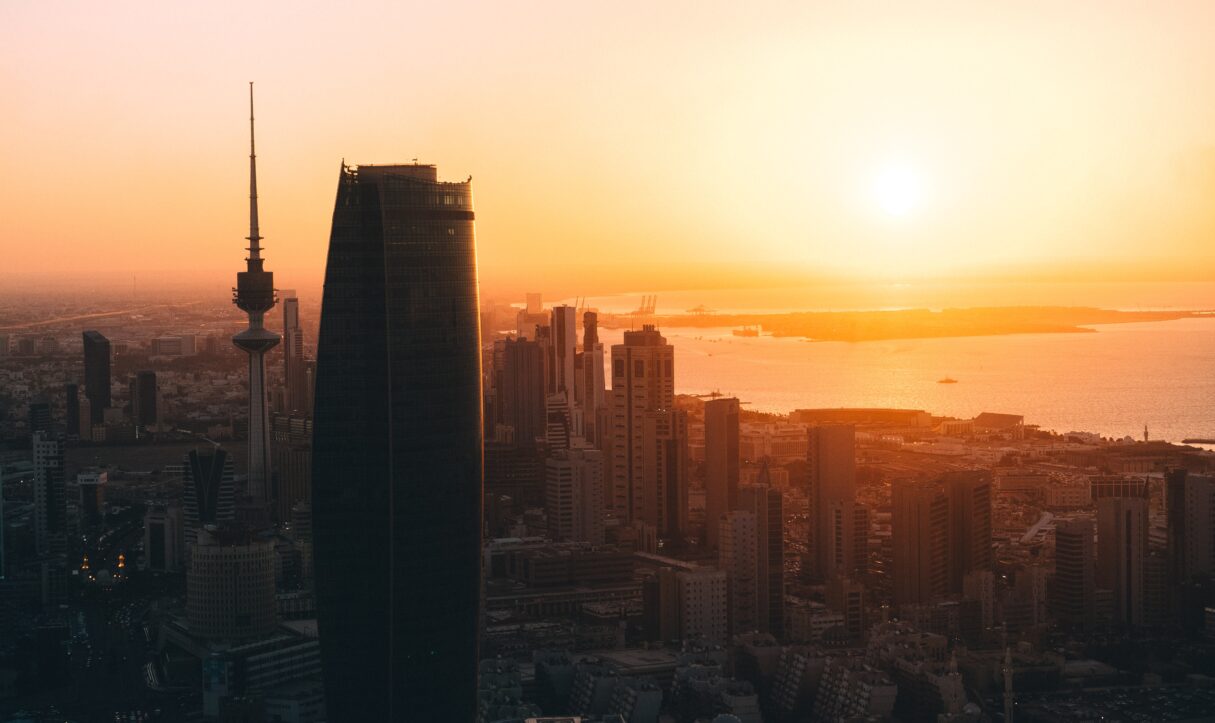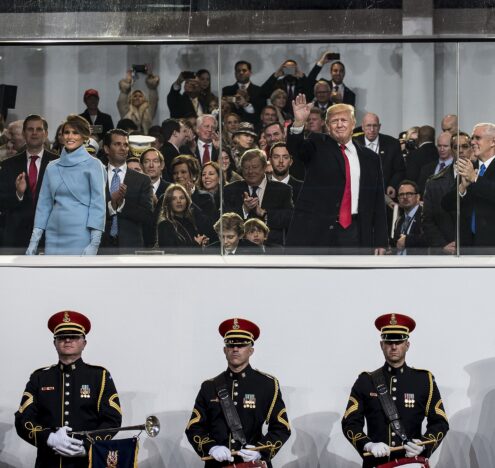In the early 1920s, the British protectorate of Kuwait held about two-thirds more land than it does today. At the Uqair Conference in 1922, the British high commissioner in Iraq Percy Cox gave much of southern Kuwait to the Najd Sultanate, which would later become the Kingdom of Saudi Arabia. Kuwaiti leadership was unhappy, but borders in the Arabian Peninsula then were relatively flexible.
While borders have hardened in the years since, the area between Kuwait and Saudi Arabia has remained undefined, even in 1938 when oil was discovered in southern Kuwait. The “Divided Zone” is an undefined 2,228 square mile, oil-rich area that straddles the two countries’ border and extends into the Persian Gulf. For years, the two states have coordinated and equally shared the profits from oil production here.
But in 2009, a new dispute emerged between Kuwait and Saudi over the Divided Zone. The two nations regularly refer to their relationship as “brotherly.” But the dispute triggered fears of some in Kuwait that Saudi Arabia might flex their muscles and redraw borders once again.
According to experts on Kuwait’s foreign relations, those fears were short-lived. Currently, Kuwait and Saudi relations are going through a strong phase.
“It does not mean the relationship was always rosy,” Bader Al-Saif, an assistant professor of history at Kuwait University, told Inkstick by email. “It had its bumps like any healthy relationship, but I would say that it is now living its best days, especially since the 1990s.”
As the relationship moves forward, any bad blood between the neighbors appears to have been forgotten.
Kuwait is an oil-rich state on the Persian Gulf that is a bit bigger than Connecticut. It is part of the Gulf Cooperation Council, an economic and political agreement between six states in the Persian Gulf region. Of these states, Kuwait is the most democratic, receiving a “partly free” ranking from Freedom House, whereas the rest of its neighbors are firmly in the “not free” category. And while Kuwait cares strongly about its own sovereignty and national identity, it shares strong commonalities with others in the region.
“National-transnational sentiments coexist both in harmony and in tension within the Gulf states (national) and across the Gulf (transnational) depending on the context and issue at hand,” Al-Saif said. “The beauty of this healthy complexity is its transient character — it evolves and shapes up as we speak. A special relationship is only natural if starting from the basic unit — the family. Many families branched out from the central peninsula to seaside areas, whether to Kuwait or other Gulf states. Kinship, language, religion, culture, and history ties more than it divides.”
Fluid Borders
For nations in the Persian Gulf region, borders have historically been fluid or flexible. Today, Kuwait’s borders are more well-established, though there are fresh memories of violations, incursions, and annexations. To Kuwait’s north and west lies Iraq, a country that invaded and occupied Kuwait in 1990, and to the south is Saudi Arabia and the Divided Zone that the two nations share.
While Kuwait’s leadership might feel their borders are secure today, this wasn’t exactly the case as recently as a few years ago. In 2009, Kuwait and Saudi Arabia failed to come to an agreement on the “management of natural resources and differing interpretations of the boundary in the Divided Zone,” according to a 2021 Carnegie report written by Al-Saif. “The resolution, agreed in 2019, represented the fifth attempt to define the borders following the previous ones of 1913, 1922, 1965, and 2000.”
In 1965, the two countries signed an agreement stipulating joint cooperation over the Divided Zone. The Divided Zone produces around 600,000 barrels of oil a day, all of which are equally divided between the two nations. But in 2009, the Saudis renewed a contract with Saudi Arabian Chevron to handle their share of onshore concession in the Divided Zone without consulting Kuwaiti leadership. It further complicated matters that the contract was for a concession located in what Kuwait saw as their part of the zone.
This led to a standoff between the two nations. Kuwait felt its sovereignty was being tested. And considering its recent history, particularly with regards to the 1990 Iraqi invasion of Kuwait, ordered by then-Iraqi leader Saddam Hussein, Kuwaiti sovereignty strikes what Al-Saif calls a “sensitive chord.”
While the two nations didn’t feud publicly, oil production stopped completely in the Divide Zone at one point in 2015. “Yet, this was done without a direct clash,” Al-Saif wrote in his 2021 Carnegie paper. “The differences of opinion were known to both parties and to outsiders, but they were not openly aired due to the historic relationship between the two nations.”
An Imbalanced Agreement?
After almost five years of no oil drilling in the Divided Zone, an agreement was finally reached. Al-Saif wrote that this comes down to three key factors: the 2015 change in Saudi leadership, Kuwait streamlining its negotiating approach with better coordination across ministries, and the global demand for oil following sanctions on Iran.
“Saudi Arabia was willing to renegotiate its extended and modified concession agreement with SAC [Saudi Arabia Chevron] to respect Kuwait’s sovereignty and laws, but it did so with the expectation that Kuwait would compensate the company for the losses it would incur by relocating its headquarters from what was now Kuwaiti land to Saudi land,” Al-Saif wrote.
Many young Kuwaitis look admiringly at the rapid transformations happening next door. But any reforms may be tempered by the country’s conservative parliament.
The compromise relaunched oil production in the Divided Zone. It also resolved a fragile issue related to Kuwait’s concerns over sovereignty without escalation. Still, some in Kuwaiti society were concerned that the final deal favored the Saudis.
“It was a compromise and Kuwait really lost more than the Saudis and I think it only happened because the Saudis flexed their muscles,” Mohammad J. Al Yousef, a Kuwaiti doctoral student at the University of Virginia who focuses on Gulf politics, told Inkstick. “Some MPs were kind of like, ‘We are giving our natural resources and lands to the Saudis again.”
But any furor was short-lived. Kuwaiti leadership promoted the agreement. While Kuwait is the most democratic of the GCC states, there are still limits. That ensured that when parliament voted in support of the agreement, very few members of parliament opposed it.
“This is not an issue anymore and I don’t think it is going to cause an issue in the future,” Al Yousef said. “I haven’t seen a single MP talking about this in the recent election campaign.”
No Bad Blood But…
As the relationship moves forward, any bad blood between the neighbors appears to have been forgotten.
“The Gallup poll released [in 2023] sums it up very clearly when it ranks Kuwaitis with the most positive views towards KSA among Arab societies,” Al-Saif said. “I believe this popular sentiment is the same the other way around and reflects the regime’s views on both sides as well.”
This mutual respect seems to have continued despite a campaign of rapid liberalization under Saudi’s Crown Prince and Prime Minister Mohammad bin Salman, also known as MBS. Once viewed as one of the world’s most culturally and religiously conservative countries on the planet, under MBS, Saudi Arabia has pushed through a number of social reforms, including stripping the notorious religious police of their power.
“Saudi Arabia spends billions of dollars hosting major entertainment, cultural, and sporting events to deflect from the country’s poor human rights record,” according to Human Rights Watch. Or as the LA Times aptly put it, dancing is in, dissent is out.
But for many in the region, the reforms in Saudi are still an exciting development. According to Al-Saif, many young Kuwaitis look admiringly at the rapid transformations happening next door. But any reforms may be tempered by the country’s conservative parliament.
“Both societies are like a pendulum with both conservative and liberal stances (loaded terms- depends how you define these concepts — a contentious exercise, I’d say!),” Al-Saif said. “Kuwait is searching for itself.”
On the flip side, the Saudi leadership has certain reservations about Kuwait’s political liberties.
“Saudi media still portrays our democracy as somehow fragile and that [democracy] is what’s blocking Kuwait from liberalization and development,” Al Yousef said. “It’s really hard for a country to be democratic in the middle of an extremely autocratic region.”
The relationship between Saudi Arabia and Kuwait might be brotherly, with a long history of cultural overlap, but each side has its own independent interests and agenda. In this case, cooperation and coordination are mutually beneficial for both states so long as sovereignty and national identity are respected.
Ultimately, Al Yousef said, “[Kuwaitis] see [Saudi Arabia] as a powerful, strong neighbor that we are destined to live with.”
Correction 06/21/23: Mohammad J. Al Yousef’s comments have been adjusted for clarity.




















